Trading Corporation of Bangladesh
TCB ready to resume sales through trucks offering subsidised essentials
The state-run Trading Corporation of Bangladesh (TCB) is set to resume its sales programme through trucks today (Monday), aiming to provide essential commodities at subsidised rates to consumers in Dhaka and Chattogram metropolitan areas.
According to a media release issued on Sunday, the TCB will offer items including edible oil, lentils, sugar, chickpeas and dates through mobile trucks.
This initiative is designed to assist low-income families and stabilise market prices.
Purchase Limits and Pricing:
Edible Oil: Up to 2 litres per person at Tk 100 per litre.Lentils: Up to 2 kilograms at Tk 60 per kg.Sugar: 1 kilogram at Tk 70.Chickpeas: Up to 2 kilograms at Tk 60 per kg.Dates: 500 grams at Tk 155.
TCB trucks selling edible oil at Tk100 per liter set to hit the streets from tomorrow
Each consumer is allowed to purchase the specified quantities to ensure wider distribution among the populace.
The TCB said that the initiative will start in Dhaka and Chattogram, with plans to expand to other divisional cities and select districts in the near future.
Consumers are encouraged to queue at designated truck station points to avail themselves of these subsidised goods.
1 year ago
TCB may start selling products at permanent shops from July: state minister
State Minister for Commerce Ahasanul Islam Titu on Tuesday (May 07, 2024) said Trading Corporation of Bangladesh (TCB) is expected to begin sale of goods at subsidised rate from permanent shops from July this year.
The state minister said this while speaking as the chief guest at the inaugural progamme of selling 3 essential products among 1 crore family card holders across the country in Norda-Baridhara area in the capital.
He said that the government is working to ensure the supply of essential commodities at an affordable price. “No one can manipulate the market if the supply of essential commodities remains sufficient.”
Read more: Nationwide Boro paddy procurement begins
Titu requested local public representatives to conduct TCB activities through permanent shops so that people can purchase goods at their convenience.
"During Ramadan, there was a ban on onion export in India. But we imported onions from India under special arrangements through TCB. Our goal was to ensure that people could buy onions at an affordable price. As a result, the price of onions is still within reach for many people," he said.
He said, “We must need to ensure that only eligible people get goods from TCB. The list would be updated periodically. We also plan to increase the number of products which are sold through TCB."
Through the family cards the TCB is providing 5 kg rice at Tk 30 per kg, 2-liter soybean oil at Tk 100 per liter and 2 kgs of lentil at Tk60 per kg for May, 2024.
Read more: Hasan Mahmud shares 5 major take-away from IOM report from Bangladesh perspective
1 year ago
TCB to procure 1.10 crore litres of soybean oil, 10,000 MT lentil for OMS
Trading Corporation of Bangladesh (TCB) will procure 1.10 crore litres of edible oil and 10,000 metric tons of lentil to sell through its open market sale (OMS) programme.
Cabinet Committee on Government Purchase (CCGP) approved two separate proposals in this regard in a meeting on Thursday, presided over by Finance Minister Abul Hasan Mahmood Ali.
Don’t listen to rumours involving commodity prices: PM
The Commerce Ministry placed the proposals on behalf of the TCB.
According to proposals, the TCB will import 1.10 crore litres of Soybean oil through open tender from City Edible Oil Ltd. at a total cost of Tk 174.66 crore with each litre at Tk 165.25.
Jatka conservation week to begin March 11
The TCB will procure 10,000 metric tons of lentil at a cost of Tk 83.12 crore from Nabi Naba Food Limited with each kg at Tk 103.09.
2 years ago
Murikata onion price goes over Tk 100 per kg in just 2 days
The price of Murikata, an early variety of onion, jumped by Tk 20 per kg to Tk 105 per kg on Tuesday (January 30, 2024), compared to Tk 80 to 85 per kg two days ago in Dhaka.
Though the wholesaler said that onion prices have dropped slightly in the wholesale market, the effect is yet to be visible in the retail market.
On Tuesday, onion prices in the capital ranged from Tk100 to Tk105 depending on quality at Karwan Bazar, Mohakhali, Hatirpool, Malibagh, and Santinagar.
Khalilo Mia, owner of Hasan store at Shantinagar Bazar, told UNB that good-quality onions have arrived in the market at a higher rate.
As the quality of this onion is slightly better, the price has also increased. However, there is no shortage of onion supply, he said.
The price of Murikata onions has also increased in the market price report released by the state marketing agency, Trading Corporation of Bangladesh (TCB). According to its report, new local Murikata onions were sold for Tk 90 to Tk 100 per kg in different markets in Dhaka.
A week ago, the price of this variety of onion was selling at Tk75 to 80 per kg; the imported onion price was Tk85 to Tk90 per kg. However, local and imported onion prices rose by 23 and 26 percent, respectively, during the week, according to TCB.
Read more: Sylhet fixes price of local variety onion at Tk 120, Indian variety at Tk 140
Onion prices have also increased in Sujanagar and Santhia upazilas of Pabna, one of the main production areas of Murikata onion. On Monday, in these upazilas, the price of onions was Tk71 to Tk78 per kg in the local wholesale markets. Onion prices have increased in the district compared to last week. Last week, the price of fresh onion there was Tk 60 to Tk 70 per kg.
The prices of other curry items like garlic and ginger have also increased by Tk10 per kg. On Tuesday, these items were selling for between Tk240 and Tk270 per kg, respectively, compared to Tk230 and Tk260 per kg last week.
The prices of all other vegetables have increased by Tk10 to 20 per kg this week compared to the last week.
However, bean, eggplant, and tomato were selling between Tk 60 to 100 based on quality, potato at Tk 50 to 60 per kg, bitter gourd at Tk 80 kg, balsam apple at Tk 100 to 120 kg, okra at Tk 80 to 100 per kg, cucurbitaceous at Tk 80 per kg, cucumber at Tk 60 to 70 kg, spone gourd at Tk 80 per kg, arum at 80 to 90 kg, radish and carrot at Tk 50 to 60 kg, green papaya at Tk 40 kg, French bean at Tk 100 to 110 kg, snake gourd at Tk 70 to 75 kg, pumpkin (medium size) at Tk 80 to 100 per piece, cauliflower and broccoli at Tk 50 to 70 piece, bottle gourd at Tk 80 to 100 piece, ash gourd at Tk 50 to 60 piece, coriander leaves at Tk 200 kg—Capsicum (red) at Tk 300 to Tk370 per kg base on size and quality.
Read more: Govt directs to intensify field-level monitoring on onion prices
The discomfort remains in the fish and meat market. Broiler chicken was selling at Tk200–220 per kg, and Sonaly chicken (a Pakistani variety) at Tk320–340 per kg. Beef, which was sold at Tk 650 in many places a couple of weeks ago, is now being sold at Tk 700 per kg everywhere.
Prices of eggs are increasing by Tk 5 to 7 in a dozen this week. Per dozen, brown eggs (hens) are at Tk 140 to 145, 5–10 taka less than white eggs. Duck eggs were selling for Tk 180 to 190 per dozen, while eggs of indigenous domestic rearing chicken were selling for Tk 210 per dozen.
The prices of fish are higher now compared to a few months ago. However, tilapia, pangas, and carp were selling for between Tk220 and 260 per kg. Among other fish, the price of medium-sized weighing 1.5 kg to 2 kg farming Rui, Katla, and Mrigel fish was selling at Tk 300 to Tk 400 per kg. Also, Pabda, Tengra, Koi, sheat (boal), chital, and Hilsa fish are not below Tk600 per kg.
The bigger fish, like coral, boal, and river pangas, were selling for between Tk700 and 1100 per kg at Karwan Bazar.
When asked about the price hike, the Director General of the Directorate of National Consumers Rights Protection (DNCRP), AHM Shafiquzzama, told UNB that his office would drive against the unusual price hike of these essentials.
He also said that a few months ago, he warned different ministries and directorates to take steps to increase the supply of essentials, including onions and potatoes, to control prices.
Consumers Association of Bangladesh vice president SM Nazer Hossain said consumers in Bangladesh are having a hard time amid record prices of commodities due to higher inflation.
Farm eggs, broiler chicken, and cultured fish are key protein sources for millions of poor people in the country, he said.
Prices of all such products have increased, forcing a vast population to cut their protein and other nutrition-rich food intake, Nazer said.
Read more: Chapainawabganj farmers reap benefits of bountiful summer onion harvest
2 years ago
TCB will sell 4 essentials at half the market price in Dhaka from Nov 14
Trading Corporation of Bangladesh (TCB) will start sale of four daily essentials—lentils, soybean oil, potatoes, and onions—in trucks at various points in the capital from Tuesday (November 14, 2023) alongside its family card programme.
These products will be available at half of the current market price.
Secretary to the Commerce Ministry Tapan Kanti Ghosh said these while talking to reporters at the conference room of the Ministry of Commerce at the Secretariat on Monday.
“Through the TCB card, 13 lakh families in Dhaka are being given products at a fair price. Apart from this, from Tuesday (November 14), 25 to 30 trucks will sell products in Dhaka when 9000 more families will be able to buy goods at lower prices. 300 people will get these products from each truck. Sales will take place every day except Fridays and Saturdays, with different days allocated to different places,” he said.
Read: TCB to import soybean oil, lentil for OMS programme
He said that the truck sale would be conducted on a first-come, first-served basis.
Given the increase in imports, the scope of this truck sale will be increased, said the commerce secretary.
He said that it will be monitored to ensure that TCB family cardholders do not buy products from these trucks.
Meanwhile, according to the sources of the Ministry of Commerce, a consumer can buy products from these truck sale only once a month.
Read: TCB to start selling 5 products to 1 crore families at subsidized prices
Tapan Kanti Ghosh said, “Anyone can buy 2 kg of lentils, potatoes, and onions and 2 liters of soybean oil. In this case, the potato will be sold at Tk 30 per kg, onion at Tk 50, lentils at Tk 60, and soybean oil at Tk 100 per liter.”
About egg import, Tapan Kanti Ghosh said that the import of 25 crore eggs has been approved.
“62000 eggs have been imported. Our aim is not to import eggs but to reduce the price of eggs. If the price is low, there is no problem even if the import is low,” he said.
Read more: TCB to sell onion at Tk35 per kg to cardholders from Monday
But until the market stabilizes, potatoes and eggs will be imported. “We got significant results because of the import of eggs and potatoes. Instructions have been sent from the Prime Minister's office that potatoes will be sold at Tk 27 per kg from cold storage. Potatoes will be released from cold storage in the presence of a district administration representative.”
2 years ago
Market mismanagement behind the rise of egg price
The price of broiler chicken eggs in the markets around Dhaka have soared to tk 170-180 (Tk 14-15/piece) per dozen in a span of a week.
Local chicken eggs are also being sold at Tk 220-230 per dozen in some places around the city.
Market experts and people involved with the egg market say mismanagement in the market is responsible for such an instability in egg prices.
Alam, president of Baridhara Notun Bazar Owners Association, told UNB, "I think the price of eggs is increasing repeatedly due to market mismanagement. Mismanagement of supply and lack of oversight are responsible for creating unstable conditions in the market. The reason behind such frequent surge in product prices should be identified.”
Read: Eggs to be imported if required : Minister
He said the concerned agency should play an effective role in controlling this frequent surge in price of products in the market.
“Otherwise, the rate at which the price of eggs is increasing cannot be controlled,” Alam said.
Nadeem, a customer at Gulshan kitchen market, told UNB that there is a weakness in the market monitoring system, as a result, the traders are increasing the price frequently.
He also urged the concerned agency to take effective action in this regard.
Meanwhile, Bangladesh Poultry Association (BPA), an association of local farmers producing eggs and chickens, has called for coordination in the market management to ensure fairness of the price.
BPA President Sumon Hawlader told UNB, "Monitoring of the market has to be strengthened. The price of egg and chicken should be adjusted at a reasonable rate keeping the cost of production in mind.”
“In this way, market conditions will be normal. The government has to take steps to ensure that no syndicate can create instability. Otherwise, it will be difficult to control the price of eggs,” he said.
According to Trading Corporation of Bangladesh (TCB) the price of broiler chicken eggs stood at Tk 140-150 per dozen last week, reflecting a significant 10 percent surge compared to the week before.
Read: Hike in egg price: Consumer Rights Protection body realises Tk 10,000 in fine in Faridpur
According to the Bangladesh Egg Producers Association, the country requires between 35 and 40 million eggs per day to meet demand. And the majority of the eggs are sourced from domestic producers.
The Department of Livestock reports that over the last 10 fiscal years, the nation's egg production has more than doubled. The country produced 1,017 crores of eggs in 2013–14, and 2,338 crores of eggs in 2022–23.
Fisheries and Livestock Minister SM Rezaul Karim told UNB, "According to the survey of our Livestock Department, it costs more than Tk 10.50 to produce an egg. Even If we take other costs and profit into consideration, it seems to me that the price of an egg should not be fixed at more than Tk 12.”
“If Tk 12 per egg is set, the producers will benefit. Apart from this, if someone tries to create instability in the market, the authorities will take necessary action under the Consumer Rights Protection Act, 2009.”
Read more: Egg prices jump by Tk30-35 per dozen, citing high production cost
Regarding whether the ministry will fix the price, Rezaul Karim said, "It is not a matter of fixing the price. Earlier, in 2010, there was an issue of fixing the price of chicks. In that case, the court questioned whether the ministry could fix the price in this way.”
Meanwhile, the government is also considering importing eggs from outside to bring stability to the egg market.
Responding to a question regarding egg import, Commerce Minister Tipu Munshi said at an event on Sunday morning that the Commerce Ministry cannot import eggs without the cooperation of the Ministry of Fisheries and Livestock.
“The decision to import eggs will be taken only after the Ministry of Fisheries and Livestock gives a green signal.”
Read more: Efforts on to break syndicates behind essentials’ price hike :Commerce minister
However, when asked about the commerce minister's statement, the livestock minister said, "We will consider the issue of importing eggs in a different way."
“Whether the Commerce Ministry will consider this issue independently or not is up to them. I think, with the current production rate of eggs in the country, there will be no need for imports if we can ensure proper management of the market.”
On fixing the price of eggs, the commerce minister said that if the Ministry of Fisheries and Livestock decides the market price for eggs, then the Directorate of National Consumers' Right Protection will be conducting raids to ensure control of the price of eggs.
With the egg market suddenly unstable, the Directorate of National Consumers' Right Protection are already conducting raids in various warehouses in the capital and imposing fines, he said.
Read more: In the EU’s inflation crisis, the humble egg takes the cake
2 years ago
Egg prices jump by Tk30-35 per dozen, citing high production cost
Eggs have become costlier by Tk 30-35 to Tk 140 per dozen compared with prices two weeks ago in yet another blow to the consumers, especially the lower income people.
Eggs, the most affordable source of protein for lower-income people, are getting pricier at a time when they are struggling with higher cost of living.
On Thursday, this correspondent visited a number of kitchen markets in the capital city to find that depending on the size and quality, a dozen of farm chicken eggs are being sold at Tk 140 to Tk 150. In some places the asking price was even Tk 155 per dozen. The same eggs are sold at super shops at Tk 170-180 per dozen.
Read more: Eggs, meat can be sold at lower prices if govt provides policy support: FBCCI
On the other hand, duck eggs are being sold at Tk 80 per hali ( 4 pieces), and domestic chicken eggs are being sold at Tk60-65 per hali.
A week ago the farm eggs were sold at Tk105 per dozen in the first week of the current month, while domestic chicken eggs sold at Tk 55-60 per hali, and duck eggs at Tk60-65 per hali.
The Trading Corporation of Bangladesh (TCB), responsible for consumer market monitoring, has acknowledged the price hike of all kinds of eggs.
The market monitoring cell of TCB reports that the egg price increased by Tk 8 to 10 per hali so far in January, compared with the price beginning of this month.
Bangladesh Egg Producers Association president Taher Ahmed Siddiqi told UNB that the demand for eggs usually increases in winter, while production has become stagnant.
Many farms were forced to shut their operations during the pandemic-induced lockdown, and are still closed due to the higher cost of production, and lower prices of eggs.
Production costs have risen by 70-80 percent in one and a half years amid a tectonic surge in feed prices, discouraging many to do trading amid the risk of losses.
Read more: No need to import eggs: Agriculture Minister
Consumers Association of Bangladesh vice-president SM Nazer Hossain said consumers in Bangladesh are passing a hard time amid record price up of commodities for higher inflation.
Farm egg, broiler chicken, and cultured fish are key protein sources for millions of poor in the country, he said.
Prices of all such products have increased forcing a vast population to cut their protein and other nutrition-rich food intake, Nazer said.
3 years ago
TCB to procure 2.75 crore litres of soybean oil
State-owned Trading Corporation of Bangladesh (TCB) will procure 2.75 crore (27.5 million) litres of Soybean oil from the local suppliers for its Open Market Sale (OMS) propgramme.
Cabinet Committee on Government Purchase (CCGP) in a virtual meeting on Wednesday approved three separate proposals of the Commerce Ministry in this regard.
Finance Minister AHM Mustafa Kamal presided over the meeting while other members of the committee attended it virtually.
The move of the TCB, a subordinate body of the Commerce Ministry, which has been operating as a state-marketing agency to tame the rising price hike of essentials, is part of the government's plan to procure some essential commodities in bulk and sell those through the OMS programme.
As per the Commerce Ministry's proposals, the TCB will procure the entire edible oils through three open tenders.
Read more: Soybean oil: No real effect of reduced tariff
Under the proposals, some 1.10 crore litres of soybean oil will be procured from privately owned City Edible Oil Limited at a cost of Tk 203.32 crore with cost of each litre at Tk 104.48 per litre.
The similar quantity of soybean oil will be procured from Super Oil Refined Limited at 204.44 crore with each litre cost at Tk 185.95 and some 55 lakh litres of soybean oils will be purchased from Shun Shing Edible Oil Ltd at a cost of Tk 101.47 crore with each litre's price at Tk 184.05.
The CCGP also approved some other procurement proposals, including the procurement of 130,000 metric tons of fertiliser.
Of these, the Bangladesh Agriculture Development Corporation (BADC) will import 50,000 MW of Muriate of Potash (MOP) fertiliser from Canadian Commercial Corporation (CCC) at a cost of Tk 344.90 crore with each metric ton cost $655.03.
The Canadian Commercial Corporation will supply another 50,000 MT of MOP at the same price under a separate lot.
State-owned Bangladesh Chemical Industries Corporation (BCIC) will import 30,000 MT of bulk granullar urea from Fertiglobe Distribution Limited, UAE at a cost of Tk 163.75 crore with each metric ton costing Tk $518.33.
The BCIC will also import 10,000 metric tons (MT) of phosphoric acid for its Chattagram TSP Complex Limited from Guizhou Chanhen Chemical Corporation, China (local agent Best Eastern, Dhaka) at a cost of Tk 73 crore.
The CCGP approved a number of proposals of the Housing and Public Works Ministry to raise the cost of civil works under its “Construction of Elevated Expressway from Lalkhan Bazar in Chittagong City to Shah-Amanat Airport” project.
Read more: Bottled soybean oil to cost Tk 14 less per litre from tomorrow
Under the proposals, the cost of the civil construction works No-WD-1 will be increased by Tk 649.02 crore, while cost of the civil works No-WD-1 of “Construction of road from Kalurghat Bridge to Chaktai Canal along the banks of Karnaphuli River” will get higher by Tk 230.05 crore.
The CCGP approved a proposal of the Roads and Highways Department to award a Tk 1,085.34 crore contract to a joint venture of (1) CHSIETC, China; (2) SLGC, China and (3) PDL, Bangladesh to implement the Construction of lot No. DS-06 of the WP-03 package of the “SASEC Dhaka-Sylhet Corridor Road Development” project.
The committee also approved three proposals for the extension costs of the three segments of a project under the South Asia Subregional Economic Cooperation (SASEC).
As per the approvals, the cost of the work of No-WP-10 package of the “Sasec Road Link Project-2: Upgradation of Elenga-Hatikamrul-Rangpur highway to 4-lane” will be increased by Tk 211.03 crore while the cost of the work No - WP-11 package of the same project will be increased by Tk 147.65 crore and cost of the works No-WP-12 package will be enhanced by 142.84 crore.
3 years ago
TCB to procure soyabean oil, lentil and sugar from business groups
Dhaka, Jun 15 (UNB) - The Trading Corporation of Bangladesh (TCB), the state-run marketing agency, will procure 1.92 crore litres of soyabean oil, 13,500 mts of lentils and 15,000 mts of sugar from different private business groups.
Cabinet Committee on Government Purchase (CCGP) at a meeting, with Finance Minister AHM Mustafa Kamal in chair, approved different proposals of the Commerce Ministry in this regard on Wednesday.
According to the decision, the TCB will procure a total of 1.92 crore litres of soyabean oil at a rate Tk 201 per litre from Bashundhara Multifood, Sinha Edible Oil, Sonsing Edible Oil, Meghna Edible Oil, Super Oil Refinery and the City Edible Oil.
Read: Continue sell of TCB goods across country: HC
Secretary of the Cabinet Division Zillur Rahman said that the government will procure the essential items from these groups through negotiation by pursuing the direct purchase method (DPM).
He also informed that the TCB will procure 15,000 metric tons of sugar at a total cost of Tk 123.05 crore from the Meghna Sugar Refinery Ltd and the City Sugar Industries Ltd.
Each kg of sugar in a single packet will cost Tk 84 while each kg of a 50 kg bag will cost Tk 81.
The TCB will procure some 13,500 metric tons of lentil at a cost of Tk 158. 62 crore from ACI Pure Flour Ltd; Sena Kalyan Sangstha; NS Construction; Bangladesh Edible Oil Ltd.; Nabil Naba Foods Ltd.; and Ease Services Ltd. Each kg of lentil will cost Tk 117.5.
The additional secretary said that the government will distribute these products among the poor families through a programme.
The Cabinet Committee also approved a number of proposals from Bangladesh Agriculture Development Corporation (BADC) to import 70,000 metric tons of DAP fertiliser and 30,000 metric tons TAP fertiliser from different countries.
A proposal of Bangladesh Chemical Industries Corporation (BCIC) received approval of the committee to import 30,000 metric tons of urea fertiliser from Fertiglobe Distribution Limited, UAE.
The additional secretary informed that Bangladesh was able to import this fertiliser from different countries at a relatively lower prices due to its long term contract with them.
END/UNB/SH/FH/1709 Hrs
3 years ago
TCB to start selling edible oil, other commodities from mid-May
The Trading Corporation of Bangladesh (TCB) will start open market sale (OMS) of some essential commodities including edible oil from mid of May in Dhaka and other divisional cities.
The ministry is working to re-fix the prices of essentials including edible as their prices have gone up on the global market, said an additional secretary to the Commerce Ministry.
Also read: Govt approves fresh hike in edible oil price effective Friday
Primarily the TCB will engage 400 trucks for OMS after fixing the prices of commodities, he said.
In the month of Ramadan, the TCB sold soybean oil at Tk110 per liter, but the price of soybean and other edible oil jumped bothon local and global markets, so it is needed to re-fix the prices of TCB’s edible oil and other commodities, the official said.
Commerce Minister Tipu Munshi will brief reports on edible oil supply and management issue at his secretariat office on Monday, senior information officer of the ministry Abdul Latif Bakshi told UNB on Sunday.
Also read: Around 23 million litre soybean oil arrives at Chittagong port amid growing demand
Besides, Tipu Munshi will talk formally with the traders, edible oil importers and refiners regarding the current situation of edible oil price and supply in the market.
3 years ago


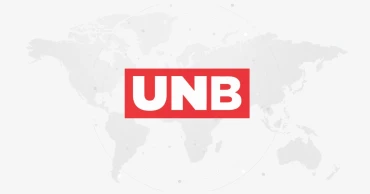
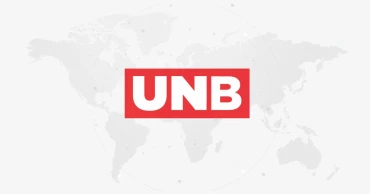
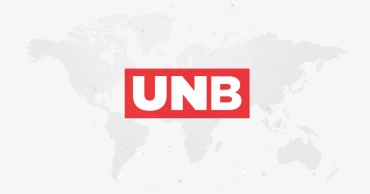
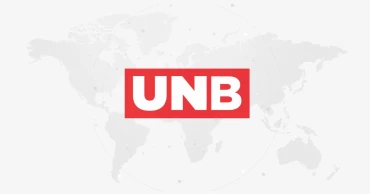
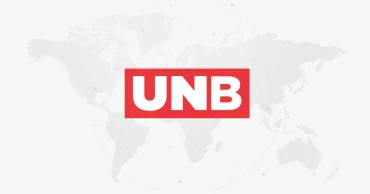
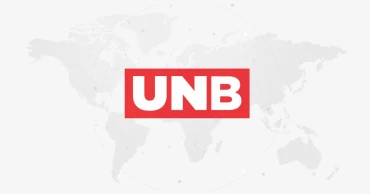
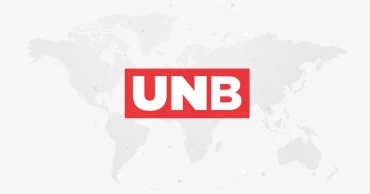
.jpg)








